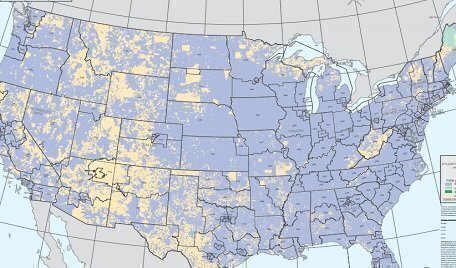On Tuesday, the nine Supreme Court Justices heard arguments for and against including a citizenship question in the 2020 census, a case considered on an expedited basis due to a pending deadline to print the census form.
 The Justice Department has said the Census Bureau needs to finalize questionnaires by June 30, 2019, to keep the census on track for its 2020 deadline. The primary constitutional question debated at the Court on Tuesday in Department of Commerce v. New York was whether Commerce Secretary Wilbur L. Ross’ decision to add a citizenship question to the decennial census violated the Constitution’s Enumeration Clause.
The Justice Department has said the Census Bureau needs to finalize questionnaires by June 30, 2019, to keep the census on track for its 2020 deadline. The primary constitutional question debated at the Court on Tuesday in Department of Commerce v. New York was whether Commerce Secretary Wilbur L. Ross’ decision to add a citizenship question to the decennial census violated the Constitution’s Enumeration Clause.
In prior court filings, the Census Bureau said it added the citizenship question to meet a request from the Justice Department to get better data to help with its compliance with the Voting Rights Act of 1965. Secretary Ross also said that after discussing the possibility of a lower census count due to non-citizens refusing to respond to the census with Bureau experts, he concluded there was “an insufficient empirical basis to conclude that reinstating a citizenship question would, in fact, materially affect response rates.”
The Justice Department also believed Ross had the power to add the citizenship question under the Census Act, and that citizenship or county of birth questions of some type “have been asked of at least a sample of the population on all but one decennial census from 1820 to 2000.”
The New York Immigration Coalition and its supporters, including New York state and Democrats from the House of Representatives, argued the citizenship question was meant to suppress a true total count of people in the United States, violating the Enumeration Clause. “The Secretary rejected uncontroverted evidence showing that the citizenship question would reduce response rates among noncitizen and Hispanic households and thus harm the enumeration’s distributive accuracy,” New York state claimed in its court filing. The administration’s opponents also argued that short notice of the question’s inclusion in the census conflicted with public notice requirements, and the decision was motivated by “animus against minorities.”
The first version of the case was accepted by the Supreme Court in November 2018 to settle the question about whether Commerce Secretary Wilbur Ross could be deposed in the case, and the Court ruled he could not. But a January 2019 district court decision, U.S. District Judge Jesse M. Furman said Ross and his aides had engaged in “egregious” violations of the Administrative Procedure Act in deciding to add the citizenship inquiry. That led to a renewed appeal to the Supreme Court and broader arguments once the Court decided to expand the case to also review the Enumeration Clause issue.
In Tuesday’s arguments, Solicitor General Noel Francisco claimed that “Secretary [Ross] acted well within his discretion when he determined that reinstating the citizenship question would provide the best evidence of citizenship,” in response to question from Justice Sonia Sotomayor.
Several Justices then questioned the Census Bureau’s need for data to comply with the Voting Rights Act. “So you can’t read this record without sensing that this—this need is a contrived one,” said Justice Elena Kagan. “Nobody had –there have been lots of assistant attorneys general in the [DOJ’s] Civil Rights Division that have never made a plea for this kind of data.”
New York’s Solicitor General Barbara Underwood, who argued on behalf of New York, also faced tough questions from the Justices. Justice Brett Kavanaugh noted the citizenship question has been asked in other countries and has existed in some form on the census for nearly 200 years, including its recent use in the American Community Survey, an ongoing survey conducted by the Bureau. “The question is, does that international practice, that U.N. recommendation, that historical practice in the United States, affect how we should look at the inclusion of a citizenship question in this case?” he asked Underwood.
“The same guidance from the U.N. also says to be careful to test questions to make sure they don’t interfere with the enumeration,” Underwood replied.
Kavanaugh also told Douglas N. Letter, who was representing the House, that “the question I think here is a policy judgment that it’s more important to get accurate citizenship information even at the expense, potentially, of a slight decrease, potentially, in response rates.”
“Our position is that, one, the Justice Department can get this information elsewhere, as we know. But, two, you can’t undermine the accuracy of the actual enumeration in order to get information,” Letter responded.
Justice Ginsburg also asked Letter why Congress didn’t act to settle the dispute. “Congress has been alerted to this citizenship question for some time, and it has done nothing about it. So one question is who should decide? Congress is silent. Should the Court then step in?”
Chief Justice John Roberts also wondered if Congress already had enough information about the citizenship question at its disposal. “What more information does the Congress need to address the problem?” he asked Letter, who said that Secretary Ross’ memo about the citizenship question lacked details. “We want to know what made [the Commerce Department] do … what made you decide this? Was this just a political decision?” he responded to the Chief Justice.
The Supreme Court is expected to announce its decision in the case by the end of its current term in June, if not earlier.
Scott Bomboy is the editor in chief of the National Constitution Center.







